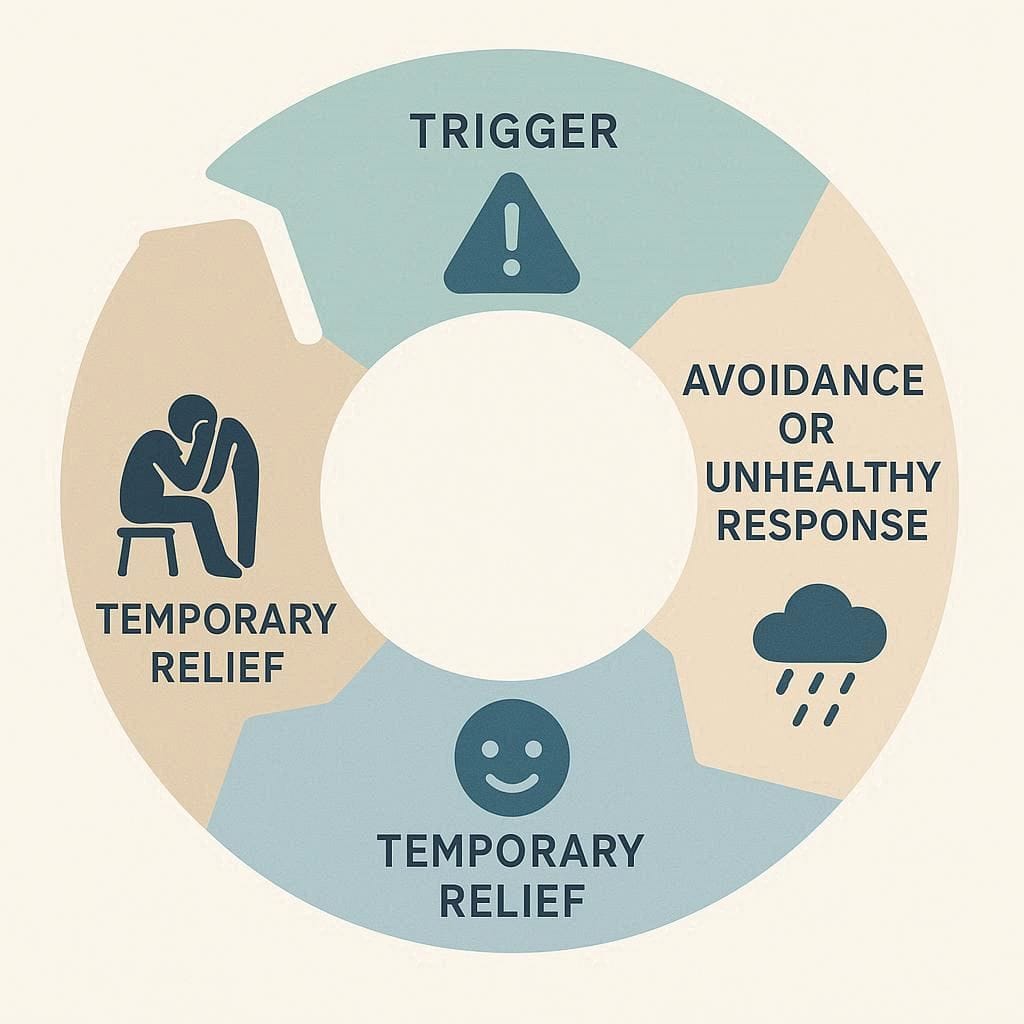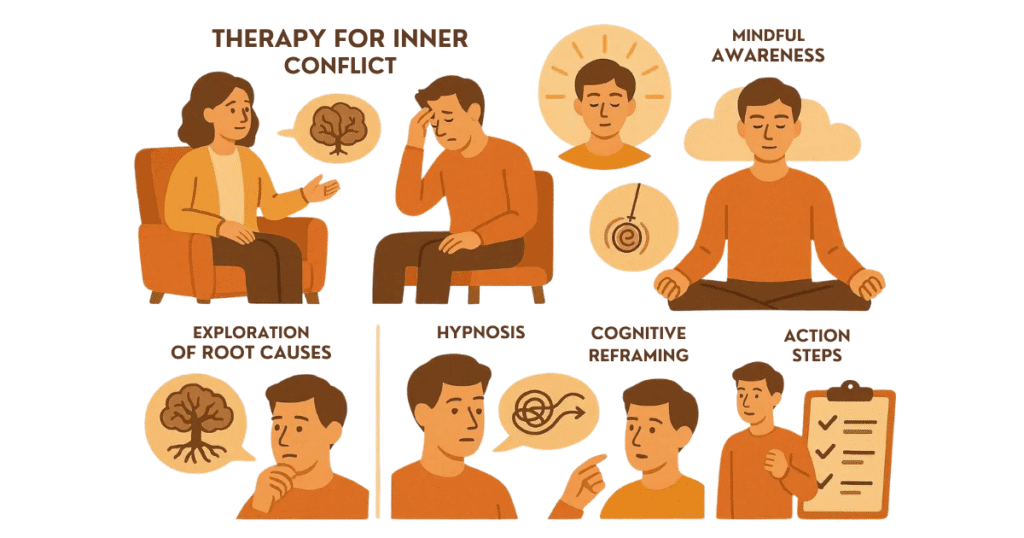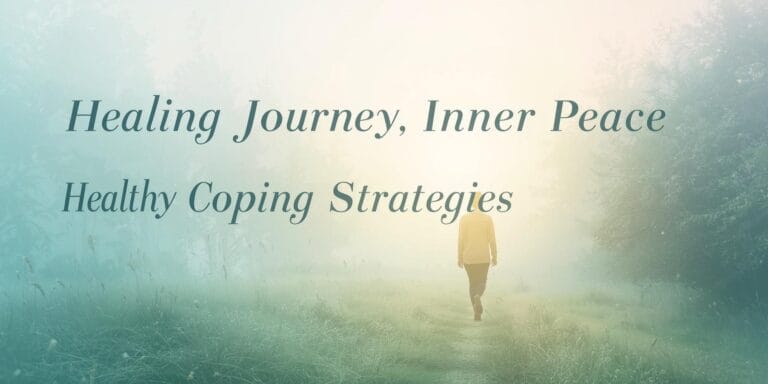Navigating the turbulent waters of inner conflict can feel like an overwhelming journey. Much like being caught in a relentless storm without a clear path forward, many of us resort to coping mechanisms that, though well-intentioned, may lead us astray. Understanding maladaptive coping strategies for inner peace is the first step toward breaking free from this storm and embracing healthier paths that promote emotional healing and resilience.
Understanding Maladaptive Coping Strategies for Inner Peace

Imagine standing at a crossroads within your emotional landscape, unsure which path leads to relief. Some choose avoidance, hoping painful feelings will dissipate if ignored. Others turn to substances or distractions, seeking momentary escapes. These maladaptive coping strategies might provide an illusion of control but ultimately perpetuate cycles of escalating inner turmoil, blocking the path to lasting peace and wellbeing.
Breaking Free from the Cycle of Maladaptive Coping
Maladaptive coping often intensifies emotional distress, creating a relentless cycle that can harm mental health. Recognizing this cycle is a powerful first step in reclaiming your emotional balance. Consider Sarah, whose reliance on alcohol seemed unbreakable until she took the brave step to seek guidance — starting a transformative journey toward healing and inner peace.
Developing Healthy Coping Mechanisms for Emotional Healing
Shifting from maladaptive coping to healthy coping mechanisms is a journey of self-discovery and growth. Acknowledging the need for change opens the door to healing. Professional support such as therapy or counseling can be invaluable guides through these uncharted emotional territories. Techniques like cognitive-behavioral therapy, mindfulness practices, and building supportive relationships are essential tools to weather life’s storms with resilience.

Practical Self-Help Tips to Follow
- Practice Mindfulness: Engaging in daily mindfulness helps ground you in the present moment, reducing anxiety and emotional overwhelm.
- Set Realistic Goals: Create small, achievable goals that foster a sense of accomplishment and progress.
- Build a Support System: Surround yourself with trusted friends or groups who encourage and uplift you.
- Maintain Healthy Routines: Regular sleep, nutrition, and exercise profoundly affect emotional wellbeing.
- Journal Your Emotions: Writing about your feelings can provide clarity and emotional release.
Small, consistent steps like these build a personal toolkit of healthy coping strategies that empower your healing journey.
How MeetGoals App Can Help You Achieve Inner Peace
MeetGoals is designed to support you in building sustainable, positive habits that align with your healing journey. By helping you set, track, and achieve personalized goals, MeetGoals provides structure and accountability—two critical components for lasting change. Whether you’re working on mindfulness routines, therapy homework, or lifestyle improvements, MeetGoals keeps your progress visible and motivating.
With features like habit tracking, reminders, and community support, MeetGoals helps transform your aspirations for emotional healing into actionable steps, making your journey less daunting and more achievable.
How Therapy Can Help: What to Expect in Your Sessions
Therapy offers a safe and confidential space to explore and resolve inner conflicts contributing to maladaptive coping. In Cognitive Hypnotic Psychotherapy (CHP), the approach combines cognitive techniques with hypnotic interventions to access deep emotional patterns beneath conscious awareness. Therapy sessions often include:

- Exploring the root causes of your coping behaviors and emotional distress.
- Mindful awareness practices to shift automatic reactions.
- Guided imagery and hypnosis to reframe limiting beliefs and release emotional blockages.
- Strategies tailored to your unique needs for building healthier coping pathways.
- Support in integrating insights and new habits into daily life.
Therapy empowers you not only to manage symptoms but to cultivate lasting inner peace, transforming relationships with yourself and others.
Overcoming Challenges with Resilience and Support
Change can be difficult, and setbacks are a natural part of growth. It requires courage to challenge societal stigmas surrounding mental health and to confront internal resistance. Cultivating resilience means learning from failures without giving up and continuing your journey toward healing with patience and self-compassion.
Conclusion
Your journey through inner conflict toward emotional healing and inner peace is a testament to your strength and resilience. By moving away from maladaptive coping strategies and embracing healthy alternatives, you unlock your potential for authentic and fulfilling living. With the right self-help tools, the support of MeetGoals, and the transformative power of therapy, a calmer, more peaceful life is within reach. Take the first step today—your story of healing awaits.




